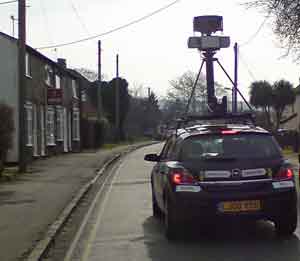Since I saw the video for ‘Wuthering Heights’ on Noel Edmonds’ Multi-Coloured Swap Shop when I was about 13, I’ve always loved Kate Bush – and I’ve just spent a solid day reading Graeme Thomson’s fairly new unauthorized biography ‘Under the Ivy’ while on holiday.
I found the book to be extraordinarily insightful into Kate Bush’s canon of work – clearly the author is a devoted fan — but it’s also quite an infuriating and frustrating book in many ways. The Bush family and close friends operate a bizarre sort of omerta – keeping a level of privacy that is so obsessive that it was only an indiscretion by Peter Gabriel two years after the event that put the news that Kate Bush had become a mother into the public domain.
So despite this book being the exact opposite of a hatchet job, there’s no co-operation from anyone in the Bush family or anyone in their direct sphere of influence – they speak but through the author’s incredibly diligent researching of contemporaneous press interviews, which themselves became more opaque with the few interviews to promote ‘Aerial’ as likely to discuss her home baking as any musical influences.
Although Thomson has interviewed many in the outer orbit, including record company executive, musicians, dancers and so on, one has the impression that their stories are not exactly candidly told. Only record producer Hugh Padgham admits to his time working with Kate Bush as not necessarily the most amazing and wonderful.
It’s a shame because the overt narrative of the book leaves many questions (such as what caused Kate Bush to break up with Del Palmer, her boyfriend of 15 years) but there are various suggestions that the author and interviewees know a lot more than they will share with the reader . The nearest the author gets to shedding light on the reason behind the obsessive privacy is in reference to Bush’s requirement for complete editorial control over an edition of the BBC’s 2009 programme ‘Queen of Pop’– ‘sometimes it’s hard to tell what exactly it is that she’s afraid of’.
There’s a clear divide between the biographical detail, where the author is very keen to couch his words in a way calculated to be diplomatic and not to cause offence, and his comments on the music, which are rather opinionated — he’s not afraid to say a track’s rubbish – even though he might be wrong (I think ‘Experiment IV’ is fantastic and I wish I had a copy). It’s almost as if the fairly brutal trashing of some of the discography is a proxy substitute for having his hands tied by non-co-operation and libel laws – ‘I can’t say what I think happened in her life story but I’ll damn well say what I think about the music’.
He takes something of the Ian MacDonald view (as in the book about the Beatles – ‘Revolution in the Head’) that there’s an arc in an artist’s career, peaking in the middle. As McDonald tended to bend the argument that Revolver and Sergeant Pepper were the apogee of the Beatles’ career then Thomson cites ‘Hounds of Love’ as the apex of Kate Bush’s.
I agree that ‘Hounds of Love’ is a fine album and one that has quite personal associations for me as its innate Englishness helped me deal with the culture shock of moving to California at the time it was released.
However, looking at the songs on the Kate Bush back catalogue, not so many of my favourites are from ‘Hounds of Love’. I made a playlist of my favourite tracks from the six of her albums that I had close to hand on ‘CD’ (excepting ‘Lionheart’ and ‘The Red Shoes’) and found the following:
- ‘The Kick Inside’ has seven: ‘Moving’, ‘The Saxophone Song’, ‘The Man with the Child in his Eyes’, ‘Wuthering Heights’, ‘Feel It’, ‘Oh To Be In Love’, ‘L’Amour Looks Something Like You’ (the latter three make a stunning sequence).
- ‘Aerial’ (6): ‘King of the Mountain’, ‘A Coral Room’, ‘Sunset’ (mainly the first few seconds ‘Could be honeycomb’ – what a beautiful phrase), ‘Somewhere In Between’, ‘Nocturn and Aerial.
- ‘The Dreaming’ (5): ‘Sat in Your Lap’ (genius), ‘Pull Out the Pin’, ‘Suspended in Gaffa’ (ditto), ‘Night of the Swallow’, ’Houdini’.
- ‘Hounds of Love’ (5): ‘Running Up That Hill’, ‘Hounds of Love’, ‘The Big Sky’ (especially the 12” version – ‘That cloud looks like industrial waste’), ‘Cloudbusting’, ‘Hello Earth’ (possibly her second best melody)
- ‘Never for Ever’ (4) although it should get extra for its absolutely extraordinary cover art: ‘Babooshka’, ‘Delius’, ‘The Infant Kiss’ (her most stunning melody – it goes into unimaginable directions, rather like the lyrics), ‘Night Scented Stock’.
- ‘The Sensual World’ (3): ‘The Sensual World’ (IMHO her best track ever for multitudinous reasons), ‘Rocket’s Tail’ and ‘This Woman’s Work’.
Had I had considered ‘Lionheart’ then I’d certainly include ‘Wow’, ‘Symphony in Blue’, ‘Oh England My Lionheart’ and, probably, ‘Hammer Horror’. I’d also want to have ‘December Will Be Magic Again’ on any playlist at any time of the year (‘See How I fall’) – the only version I have is an 80s remix on a compilation with some detestable bongos added. There are also a number of excellent B-sides like ‘Passing Through Air’, ‘Lord of the Reedy River’ and ‘My Lagan Love’.
I’d be tempted not to include anything at all from ‘The Red Shoes’ – any album with Lenny Henry on it really can’t be taken seriously, even if it is by Kate Bush – although, at a push, ‘Constellation of the Heart’ is quite jolly.
So my arc doesn’t have a pattern much at all – maybe a rollercoaster pattern in very quickly ascending the heights at the start, then dipping a little, building some more momentum, then plunging erratically into the doldrums before straightening out a little and levelling into some consistency towards the end. But what a ride!


